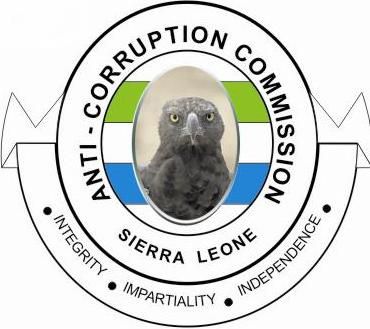By Amin Kef Sesay
Truthfully, many Sierra Leoneans following President Bio and the Anti-Corruption Commission’s determined fight against corruption have said that they would not like to be in the President’s Government.
The simple reason being that from the look of things, when the 2019 Audit Report comes out, which will solely be the responsibility of this Government, some people (human beings not being perfect), will certainly fall short and will have to face the ACC for corruption related offenses.
Let us give the late President Ahmad Tejan Kabba and his successor Dr Ernest Bai Koroma kudos for the former being bold and brave enough to set up the ACC and the latter for giving it claws and teeth to bite.
Certainly, it was under the leadership of Kaaba and Ernest that the fight against corruption in Sierra Leone gained momentum, in terms of policy direction, following the enactment of the Anti-Corruption Act 2000 and the Amendment Act in 2008 which is considered to be one of the most robust anti-graft laws in the world.
Its promulgation is in recognition of the international and national resolve to fight the menace, owing to its devastating effects, especially in the Least Developed Countries (LCDs) of the world.
The Anti-Corruption Act of 2000, though viewed as a tremendous move towards curtailing corruption, was riddled with shortcomings. Practitioners viewed the Act as limited in the number of proscribed offences created, coupled with the lack of independence signified by the absence of prosecutorial powers. Enactment of the Amendment Act in 2008, gave widened opportunities to eradicate corruption.
No doubt, corruption has eaten deep into the administrative and managerial fabric of Sierra Leone and weakened the weak public service delivery, which has led to citizens having little motivation to pay their taxes.
For decades, Sierra Leone has languished at the bottom of international corruption rankings. Despite detailed anti-corruption legislation that has been on the books since 2000, millions of aid dollars in technical assistance and repeated promises by politicians, corruption has persisted, even flourished.
Even now, Sierra Leone has a long way to go in the fight against corruption. Petty corruption, particularly among traffic police, remains rampant. Officials continue to award lucrative contracts to friends and political allies.
However, reforms under the Bio administration that includes enacting of the revised ACC Act of 2019 have been positive. Yet there is still a wide range of issues to be tackled.
Parliament still is not strong enough to robustly perform its primary oversight duty of following up on how monies that it approves for expenditure by the MDAs are judiciously utilized for their intended purpose.
Data on service delivery is weak. Accountability systems in the MDAs are not operating effectively. Grand and petty corruption is widespread at all levels (from common reports of small-scale bribery in health centers and schools, to the perception that Traffic Police, Traffic Wardens and Government officials that handle money or dispense public goods and services are corrupt.
As such, more work remains to be done by President Bio , in line with the major priorities of the Government, to place strong emphasis on increased tax collection and improving on expenditure management to ensure proper delivering of education, healthcare, etc.




